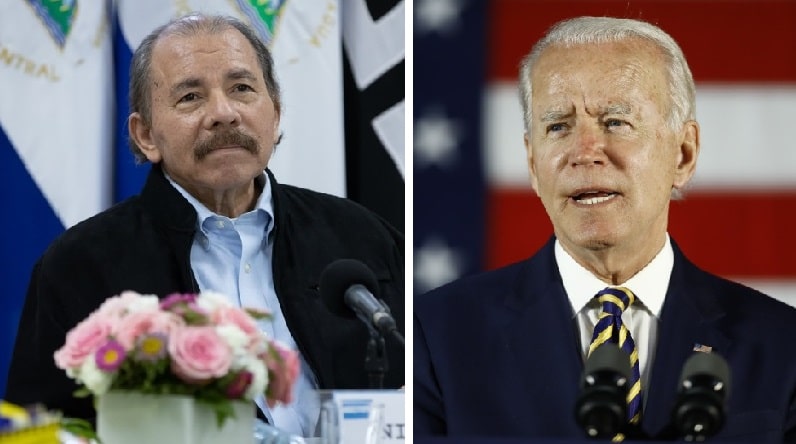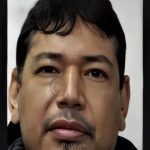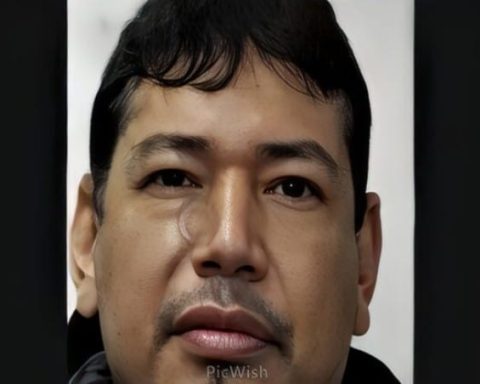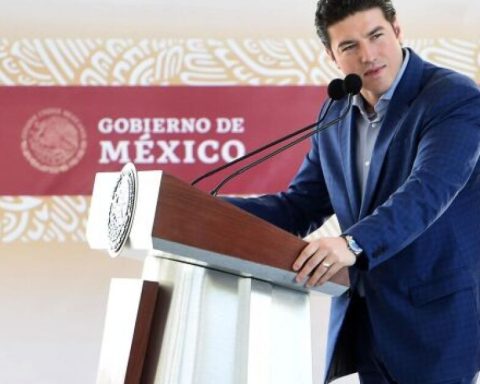The General Directorate of Mines (DGM), attached to the Ministry of Energy and Mines (MEM), and the political operator Lenín Cerna, identified as “a close confidant of the president of Nicaragua, Daniel Ortega”, were reached this October 24 by new sanctions from the United States government under Democrat Joseph Biden, who at the same time announced that he could prohibit its citizens from investing in the Nicaraguan mining sector.
The Treasury Department summarizes that Cerna was head of state security during the first Ortega government in the 1980s and “was involved in numerous incidents of violence, murder and torture and admitted to being associated with known terrorist groups.”
“Cerna – the statement describes – previously worked at the Nicaraguan Consulate in Honduras and allegedly helped in the assassination of Pablo Emilio Salazar, head of the presidential guard of then President Anastasio Somoza Debayle. Cerna allegedly provided the gun that killed Salazar. Once he took over as head of State Security under Ortega, according to public reports “and concludes that he” became famous and feared as a torturer “.
Thus, it justified that “Cerna is being designated, in accordance with EO 13851, for being an official of the Government of Nicaragua or having served as an official of the Government of Nicaragua at any time after January 10, 2007.”
The impact of the mining sector in Nicaragua
In January this year, the United States sanctioned major general (retired) Ramon Humberto Calderon VindellChairman of the Board of Directors of the Nicaraguan Mining Company (Eniminas), and then, in June, to his successor, Ruy López Delgado as well as Eniminas herself. Nowexecutive order 13851, signed by Biden, also points in the direction of prohibiting US citizens from investing in the Nicaraguan gold industry.
Although most of the mining investments in Nicaragua are of Colombian, Canadian, British and Nicaraguan origin, there is a presence in them of US investors –as is the case of Randy Martin in Plantel Los Ángeles, and of Mark Child, whom a note from the AP news agency identifies as CEO of Condor Gold-– those who could now be prevented from making new investments in the sector.
In 2021, the mining sector was consolidated as the first exporter of Nicaragua, with 880.2 million dollars, and aspires to export 1 billion in 2023and has been subject to US sanctions, because the Government of that country considers that “Ortega and his cronies continue to use the profits derived from the production and sale of gold to line their own pockets and pay those who keep the regime in power” .
The General Directorate of Mines sanctioned by the United States
The United States Department of the Treasury defines the General Directorate of Mines (DGM) as an office subordinate to the Ministry of Energy and Mines (MEM) of Nicaragua, and recalls the previous sanctions against Eniminas, in June of this year.
According to the US Treasury, this Directorate “has managed most of the mining operations in Nicaragua on behalf of the Nicaraguan government. As such, DGM is an important piece of the state-controlled gold operations in Nicaragua” and questions that “Ortega and his cronies continue to use the profits derived from the production and sale of gold to line their own pockets and pay those who maintain to the regime in power.
“The (Ortega) regime has used this power to intimidate and imprison those who denounce the regime’s corruption and to sow instability around the world, including by supporting a further invasion of Ukraine by Russia,” it adds.
The Treasury justifies the sanctions by stating that “by being owned or controlled, or having acted or pretended to act for or on behalf of, directly or indirectly, Salvador Mansell Castrillo, who is the Minister of Energy and Mines of Nicaragua and whose property and interests in the property were blocked pursuant to EO 13851 on November 15, 2021.”
Likewise, it explained that the OFAC also issued the General License of Nicaragua (GL) 4, “which provides an authorization for a limited time that allows US persons to settle transactions involving DGM” and that the Office also issued an “associated guide that points out that foreigners generally do not run the risk of being sanctioned for participating in activities that would be authorized by GL 4”.
Sanctions target the gold industry in Nicaragua
The measure approved by Biden authorizes the Treasury Department to target certain persons “who operate or have operated in the gold sector of the Nicaraguan economy,” and any other sector identified by the Secretary of the Treasury in consultation with the Secretary of State.
The expanded sanctions, they detail, “could be used to prohibit new US investments in certain sectors identified in Nicaragua, the import of certain products of Nicaraguan origin to the United States, or the export, from the United States, or by the United States.” .
Under Secretary of the Treasury for Terrorism and Financial Intelligence Brian. E. Nelson, assured that “the continuous attacks by the Ortega-Murillo regime against democratic actors and members of civil society and the unjust detention of political prisoners show that the regime feels that it is not bound by the rule of law,” according to a Treasury Department statement.
Nelson added that “with President Biden’s new Executive Order, we can and will use every tool at our disposal to deny the Ortega-Murillo regime the resources it needs to continue undermining democratic institutions in Nicaragua.”
Biden’s approval also expands Treasury’s authority to hold the Ortega-Murillo regime accountable for its ongoing attacks on Nicaraguans’ freedom of expression and assembly. Since Ortega’s return to power in 2007, they have been 54 media outlets closed or confiscated and from November 2018 to September 2022 the Ortega dictatorship has canceled more than 2,200 NGOs.
The White House justifies new US sanctions
The White House detailed the new sanctions approved by the Government of Joseph Biden and Kamala Harris and justified that “President Biden is taking more measures to demonstrate our commitment to the Nicaraguan people by expanding the tools to make the Ortega-Murillo regime give accountable for its escalation of human rights violations, continued dismantling of democratic institutions, attacks on civil society, and increased security cooperation with Russia.”
The white house statement indicates that President Biden signed an Executive Order to expand the authorities available to increase specific pressure on the Ortega-Murillo regime. “This will give the Administration additional means to target the regime while allowing the necessary flexibility to continue supporting the people of Nicaragua,” he explained.
He recalled that in the period prior to the “fictitious elections of November 2021 in Nicaragua”, whose government described as “electoral farce”, the Ortega-Murillo regime arbitrarily detained dozens of political opponents and activists. “Since then – he maintains – the limited democratic space remaining in the country has been further reduced when the Ortega-Murillo regime closed more than 2,000 non-governmental organizations and subjected political prisoners to extremely harsh conditions”, and also “has increased his attacks on religious leaders and has closed private universities, robbing the youth of Nicaragua of their future and politicizing education.”
The White House claims that, while the United States and its allies continue to take measures to hold Russia responsible “for its war of aggression in Ukraine”, the Ortega-Murillo regime in Nicaragua increases its cooperation with Moscow, “by authorizing the continued presence of Russian military personnel and equipment in the country”, and questioned the fact that Nicaragua was the only country in Latin America, which in October 2002 vote with Russia against a United Nations General Assembly resolution condemning its attempted illegal annexation of parts of Ukraine.















